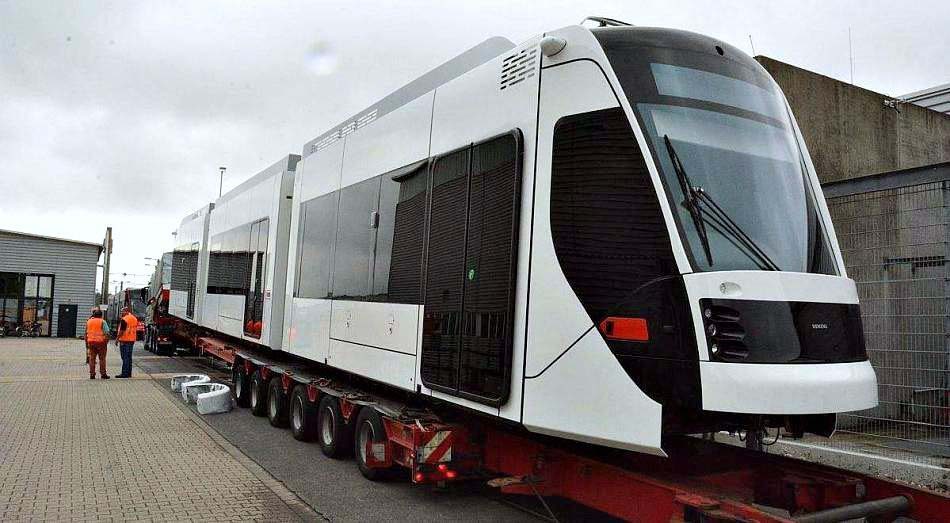
The first batch of trams for Qatar Foundation’s upcoming people mover system has been shipped out of Germany and is heading to the Doha Port, engineering company Siemens has announced.
The three Avenio trams are among eight scheduled for delivery to Qatar this summer, as part of a US$412 million project aimed at making QF a car-free campus.
A total of 19 trains are being manufactured by Siemens, whose first shipment comes after a round of testing earlier this year to see if the trams could withstand the extreme heat and high humidity of a Qatar summer.
The new tram system is envisioned to transport an average of 3,300 people in each direction an hour, with 16 of the 19 trains operating at four-minute intervals during peak time.
Onsite testing of the people mover system is set to begin early next year, and the first passengers are scheduled to ride the tram by fall 2016, a year behind the proposed 2015 launch.
Car-free
Once completed, the system will connect visitors, university students and the QF workforce through 24 designated stations along the tram network.
Students and staff will have to park at various multi-story car parks around the Education City perimeter, and ride the tram to their classrooms and offices.

The people mover system is one of several efforts by QF to move toward a car-free environment.
In late 2010, it introduced silver and gold locomotive style trains to reduce traffic and shuttle people across schools.
But the project was quickly scrapped because the trains moved too slowly, ran on diesel, and were the subject of much ridicule on campus for its amusement-park style feel (it was dubbed the “Hogwarts Express” by some).
More recently, a bike rental system was rolled out in 2013, and QF briefly stopped students from parking on its premises due to ongoing construction in the area.
Environmentally friendly
Each air-conditioned vehicle measures 27m X 2.5m and has a capacity of 222 passengers: 60 seated and 162 standing.
During the testing phase earlier this year, humidifiers and heating pads were added to the trams to simulate passengers, while artificial light was shone on the vehicles to replicate the harsh rays of the sun felt in Qatar.

The trams have been fitted with special on-board climate control systems to ensure that temperatures inside the cars, even when at capacity, are kept at a cool 25C.
Meanwhile, to reduce high energy usage and eliminate the need for overhead cables, the trams will be powered by Sitras HES, a hybrid energy storage concept.
The systems are rechargeable from overhead conductor rails at one of the 24 stations on the 11.5km tram network, and the device’s batteries will also store energy generated during braking.
According to QF, the system is slated to be one of the region’s most energy efficient transport systems.
The low-floor Avenio trams will also be wheelchair-accessible and are designed with sunshades to protect electrical equipment mounted on the roof, Railway Gazette reports.
As part of its contract, Siemens is also scheduled to deliver signaling, communication, electrification and depot equipment. Other elements like the tracks, stations, and civil engineering work are part of a separate contract with the Habtoor Leighton Group worth $124 million.
Thoughts?







